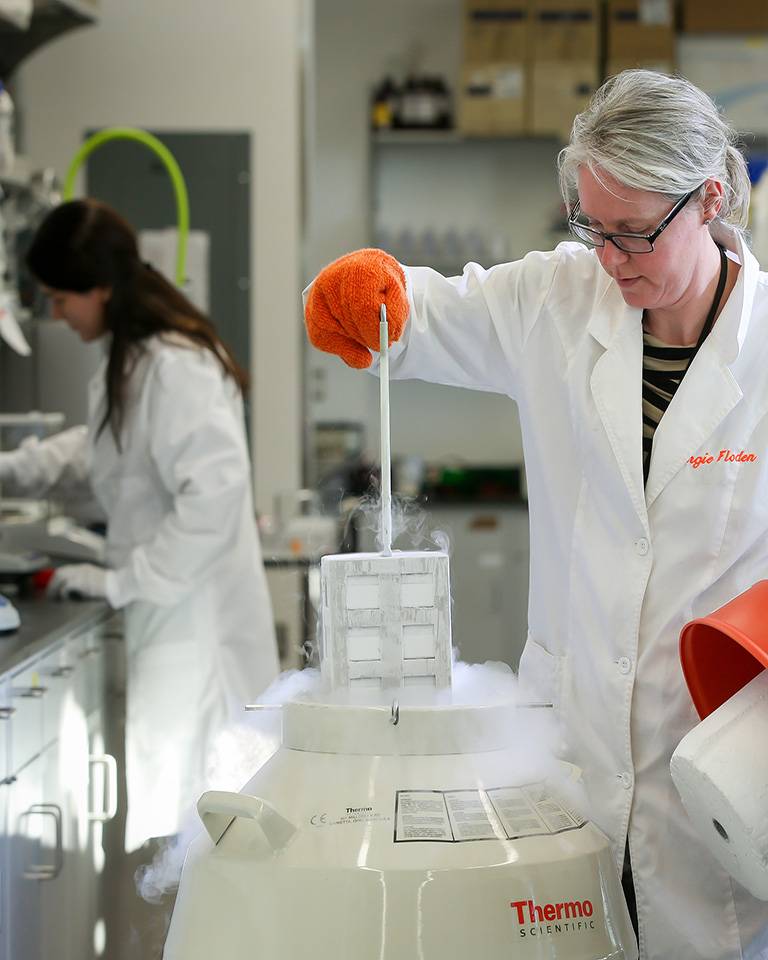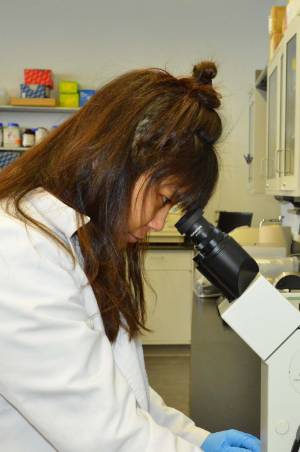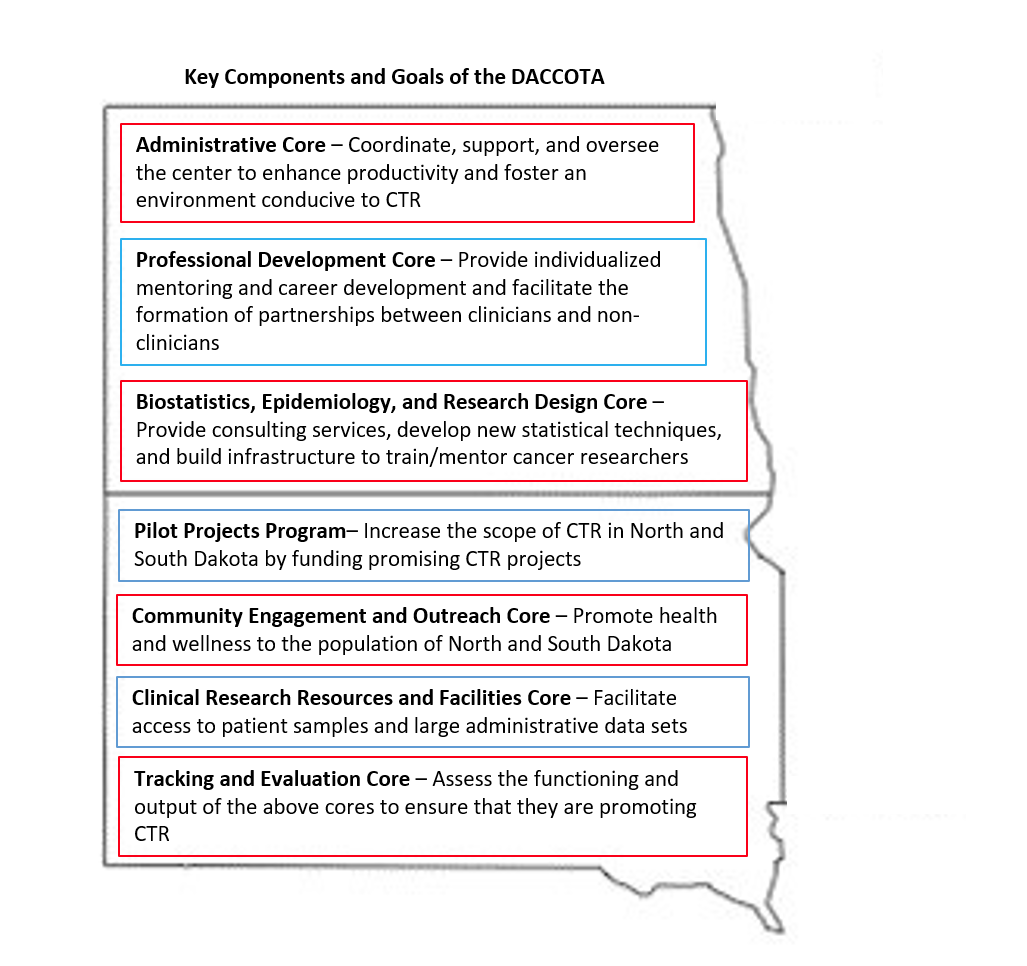
DaCCoTA
Welcome to the Dakota Community Collaborative on Translational Activity.
What is the DaCCoTA?
 The goal of the DaCCoTA is to bring together researchers and clinicians with diverse
experience from across the region to develop unique and innovative means of combating
disease in North and South Dakota.
The goal of the DaCCoTA is to bring together researchers and clinicians with diverse
experience from across the region to develop unique and innovative means of combating
disease in North and South Dakota.
We believe advances in disease treatment will come from broad approaches by collective groups of clinical and basic researchers who are focused on conducting clinical/translational research.
The DaCCoTA is supported by the National Institute of General Medical Sciences of the National Institutes of Health under Award Number U54GM128729.
DaCCoTA News
2023 DaCCoTA & AICoRN Annual Symposium
The annual symposium took place virtually on July 27, 2023, hosted by the University of North Dakota School of Medicine & Health Sciences. More details are available on the symposium webpage.
DaCCoTA Resources
Enroll in the Pathfinder web portal to find collaborators
You will also be able to access various clinical and translational research resources including the Biostatistics, Epidemiology, and Research Design Core; the Community Engagement and Outreach Core; the Professional Development Core; the Pilot Projects Program; and the Clinical Research Resources and Facilities Core.
Explore the resources available through the DaCCoTA
Our Partners
- University of North Dakota

- North Dakota State University
- University of South Dakota
- Sanford Health
- USDA Human Nutrition Research Center
- Fargo VA Health Care System
- Sioux Falls VA Health Care System
- Altru Health System
- Essentia Health
- Trinity Health
- Monument Health
- Catholic Health Initiatives (CHI)
- Mount Marty University
- South Dakota State University
DaCCoTA investigators may also wish to explore partnerships with the Turtle Mountain Genetics Laboratory.
What is Clinical Translational Research?
Clinical/translational research (CTR) focuses on translating findings from basic research into clinical applications with the overall goal of improving the health of the community.

